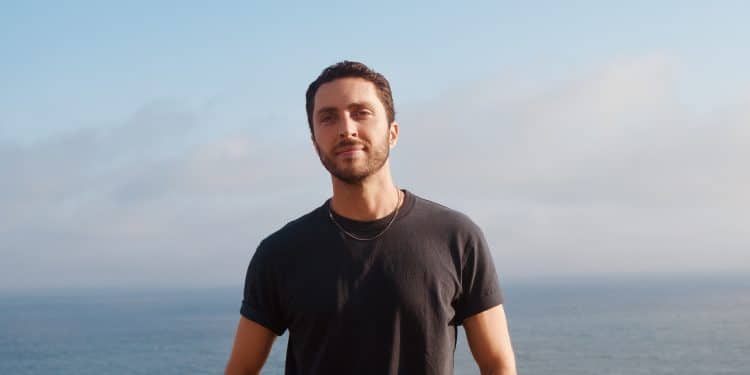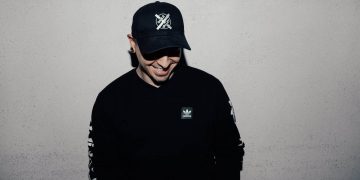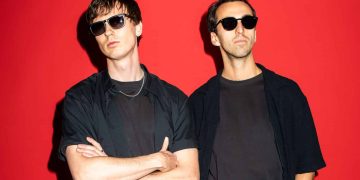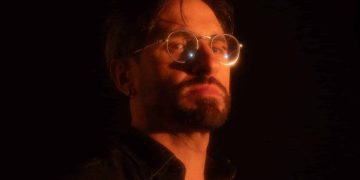San Francisco’s Deep Pedi is making his mark with driving sets, creating a community for local artists, and reviving the beloved ’90s scene.
Deep Pedi’s origin story is one many DJs can resonate with. From experiencing warehouse parties all the way to the biggest festivals, feeling the magic and community first-hand, to stumbling upon some CDJs and exploring the craft, it’s hard not to be inspired by the electronic scene and want to be a part of it. Deep Pedi took his journey as a fan of the music and has honed his skills to become a regular in the San Francisco circuit; DJing sets at underground parties similar to those he first experienced to performing at some of the city’s leading nightclubs.
His craft has landed him a spot supporting Richie Hawtin on his From Our Minds, underground warehouse tour later this month, focused on bringing back the energy of the ’90s scene. This is particularly important for Deep Pedi, who aims to pay homage to that revolutionary era of electronic music while re-interpreting it in a modern light. He leans on his experience as a dancefloor patron to shape his vision and craft sets to inspire those that see him.
To further his efforts to bridge the old and new, Deep Pedi also recently launched his project, The Garden, an independent online radio highlighting local artists. It’s a community founded on love for the underground techno scene and hopes to grow its influence beyond the Bay Area and serve as a discovery hub for new music and sounds.
Press play on Deep Pedi’s exclusive guest mix on SoundCloud, and keep on reading for our interview to learn more about this rising DJ!
Stream EDMID Guest Mix 363 || Deep Pedi on SoundCloud:
What was your first exposure to electronic music, and how did you find your way into DJing?
My journey started as a raver, working my way up from local warehouse parties to small raves and eventually to EDC and Tomorrowland. I just could not get enough. Seeing hundreds and thousands of people sharing their love for music is just something unique that everyone needs to experience to understand this feeling of euphoria.
Long story short, after two years, I ran into a friend who had a friend with a DJ controller, and we used to jam to experimental and bass music for hours in his downtown apartment. It was different. I became interested in mixing my own music, and my crash course started. Within the next two years, I changed about four controllers, became exposed to multiple genres of electronic music, and then made my transition into the good old xone 96 and CDJ. This is just the beginning.
Being a rising artist can come with challenges. What are some you’ve faced in starting your DJ career, and how did you overcome them?
Well, I wouldn’t consider myself a rising star, but regardless of that, I think this is a tough career that challenges everyone from bedroom DJs to best-selling producers. One challenge that I faced initially was staying true to my style and passion and not giving in to today’s trend just to get booked for more shows. I remember that it took me at least two to three years to start getting noticed, not even booked.
But now, looking back, I see that going through this journey made me experiment a lot more and fine-tune my sound so that when I get booked, I can practice all of that on the dance floor. In other words, I added certain tools to my toolbelt, which enables me to mix from bass to house to techno, and that’s where I fell in love with the deep/driving and hypnotic techno sound of ’90s warehouse parties.
How does being based in the Bay/SF influence your sets and sound?
Being based in the Bay/SF feels like having access to the most exclusive library. My crew and I used to hit about three to four club shows and afters every weekend, and it’s hard because, fortunately, there are so many good bookings that it’s often hard to decide. I’d say by being exposed to a variety of genres and artists, you just become more versatile. You can first learn the rule, then break it, and by that, I mean you get to learn what defines a certain genre of music and then try to dissect, analyze and bring your own touch into it to make it personal. To leave a signature.
From your perspective, what are the most unique aspects of the scene in SF? What are your favorites?
One word: Afters. SF is packed with good bookings, thanks to my fellow promoters, and then the party continues where the real magic happens. I think it is critical to first be on the dancefloor or party and understand what the crowd wants so that later when you step into the DJ booth, you can deliver properly.
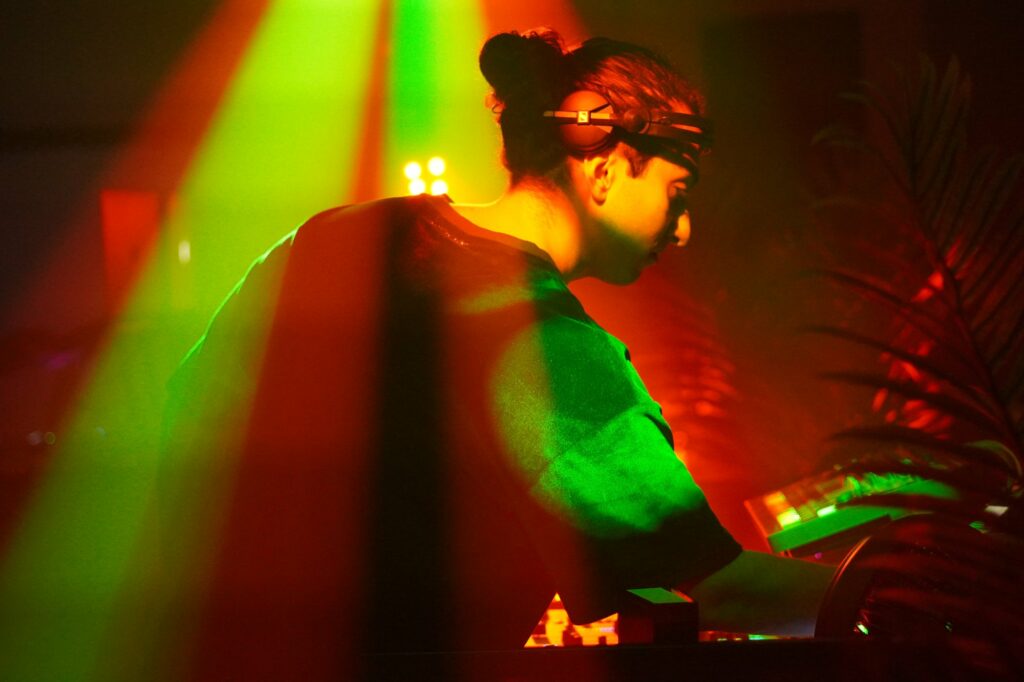
You’re supporting Richie Hawtin on his tour, set to take place in warehouses across North America, harkening back to the underground techno scene of the 90s. What about this era do you love the most, and why is it important for you to highlight it on this tour?
Anything and everything about this era. Most importantly, the analog sound being blasted from the speakers. Synth-heavy instruments and artists using every bit of technology that they have and turn them into sounds. It was like the renaissance but for the electronic dance music that challenged every bit of what is known to redefine and shape the history of dance music.
I feel extremely blessed and honored to be part of this tour, and I believe that now more than ever, it is time to go back to the root of where it all began. To redefine what we call Techno using today’s technology but bringing back the same old analog sound that shakes not only your body but also your soul. To speak to the younger generations of ravers and increase awareness about the origin of techno music.
The tour will also be featuring a diverse set of underground artists who, as you say, are “moving the ideals of ‘90s techno forward in their own unique ways.” What is your take on ’90s techno, and what about this era are you hoping to recapture in your sets?
I am trying to explore a relationship between synthesizers, drum machines, guitar pedals, and CDJs to play a hybrid set. What I love about doing this is that it emphasizes the importance of the present. It requires you to personally be on the dancefloor to experience it, which means even if you record it, it would not be the same; therefore, no phones or recording are allowed.
I’m all about the experience and providing something slightly different from what you are used to. I feel that this is my duty to keep pushing as an artist and stay out of my comfort zone, where creativity happens. Learn new components and start experimenting to create something that hasn’t been found before.
What is your favorite part of being on the road? Are there any cities you’re particularly excited about on this tour?
I am not on the road full time for this tour, but if I was, my favorite part would’ve been meeting all the different people from all over. As an artist, I feel like it’s really easy to get lost in your own bubble but doing a tour on this scale would be a good test for your previous work and can inspire the ones coming in the future.
My favorite city is, of course, the birthplace of Techno, Detroit.
You recently announced your project, “The Garden,” can you tell us a little more about it? What was the inspiration? How are you finding artists to spotlight?
I was watching an interview on YouTube from Jeff Mills called “Red Bull Music Academy: Jeff Mills (Berlin, 1998)” where I saw him talk about his journey and how he used to host a radio in Detroit. He developed a way to showcase records which inspired me to keep pushing myself as well as contributing to the community. I believe staying relevant and contributing to the community is a big factor if you are planning to learn and grow.
My plan for “The Garden” is to promote a non-biased community where artists of all scales, colors, or orientations can express their sounds without being worried about perfection. I want it to be experimental, so you get to do things that you don’t normally try on the dance floor; perhaps something special would come from it. I’m planning to get artists to join from the local scene as well as national and international bookings that we have in the city. This is for our underground techno community and hopefully supported by the same people.
What do you envision for the future of “The Garden”?
I see the future for “The Garden” as a place to combine the old and the new. A place where you might go to get inspired because I remember I always used to search the internet for new sounds. Not everyone has the time or access to certain records, so maybe this can be a platform to showcase those unique sounds, so you get inspired and create your own style from it. But other than that, I see it as a place just to get together and jam-banging techno.
Lastly, just for fun, which venue is your favorite to play in SF?
I enjoy playing at warehouse parties with no names, but if you want venues, I’d say Halcyon and F8 nightclubs. My utmost respect to the team behind the scene because they never get enough credit. It is extremely hard owning and running a club where you must be business savvy but also make bookings to further promote the culture.
Follow Deep Pedi:
Facebook | Instagram | SoundCloud | YouTube



